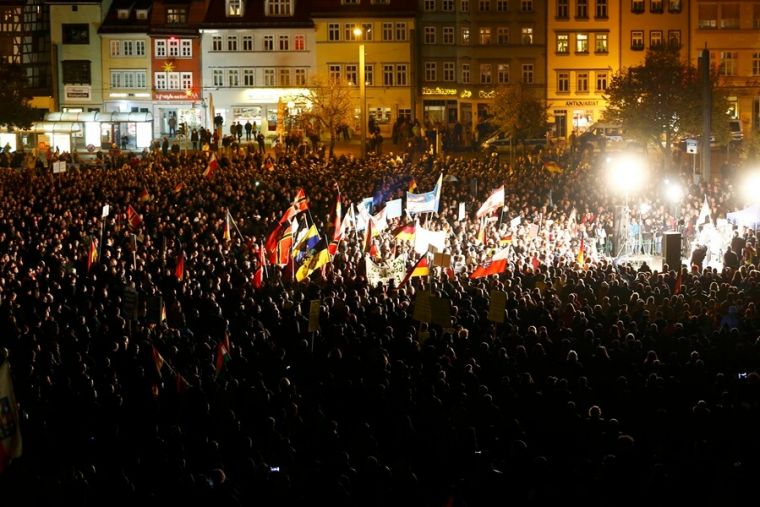German town of 100 livid over impending arrival of 1,000 migrants from Syria

Residents of a small village in Germany said the federal government's plan to integrate 1,000 Syrian migrants in their town will be difficult to manage logistically and may put the community at risk.
Locals from the village of Sumpe in Lower Saxony, population 100, recently gathered for a public meeting to discuss the fallout from Chancellor Angela Merkel's embrace of migrants fleeing from Syria's civil war and Islamic State jihadists, according to a report by WND.
They claimed that the number of newcomers who will be integrated in their town vastly outnumbers the population and that the town would have to contend with its limited waste disposal and medical emergencies.
"1,000 is too many,'' said resident Dirk Hammer.
"How do we protect ourselves against crime?'' asked another resident, according to WND.
Even the local town mayor Christian Fabel told Breitbart that the community would most likely suffer from stress once the migrants set in.
"I did not expect so many interested residents," said Fabel, upon learning that the small town had been into serious discussion about the impending transfer of the Syrian migrants.
He said, however, that "200 to 300 migrants would have been appropriate.''
"The closest supermarket is also in Neuhaus, that's 4 kilometres away for 1,000 refugees. Public transport barely exists. Local buses are few and far between. We're in the back of beyond here," Fabel said, the German Press Agency DPA reported on Thursday.
Once the legions of refugees arrive, he said street lights would be on at night and new policemen would be hired.
Roughly 450,000 migrants have arrived in Germany this year. Officials expect 800,000 to arrive by 2016.
Germany—which earlier criticised its European Union partners for not doing more to help people fleeing the war, violence and poverty in Asia, Africa and the Middle East—had received 218, 221 asylum applications by the end of July, according to a report by the Guardian.
"We've got to reckon there will be 800,000 people coming to Germany as refugees or seeking asylum,'' said interior minister Thomas de Maiziered. "It will be the largest influx in the country's post-war history.''
"It's a challenge for all of us at the state, federal and local levels. We can master this challenge. I don't think this will overwhelm Germany,'' he added.
Germans have been protesting their government's plans to take in migrants, citing among others their own safety and security against Islamic radicals and terrorists who may be hiding among the refugees in attempts to incite violence or recruit new members.
In addition, Germany is said to have a shortage of lodgings in cities including Berlin, Munich and Hamburg. As it is, it is already struggling to process the thousands of applications for refugee status. In many other areas, there have also been arson attacks and protests against the rising number of migrants, reports said.











